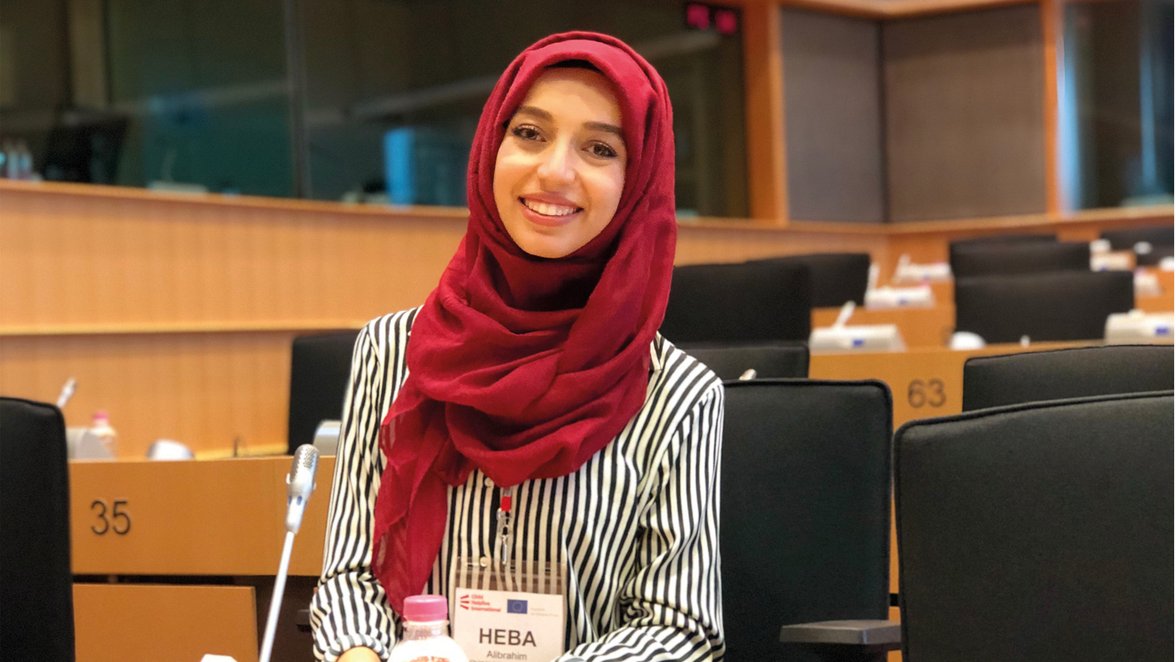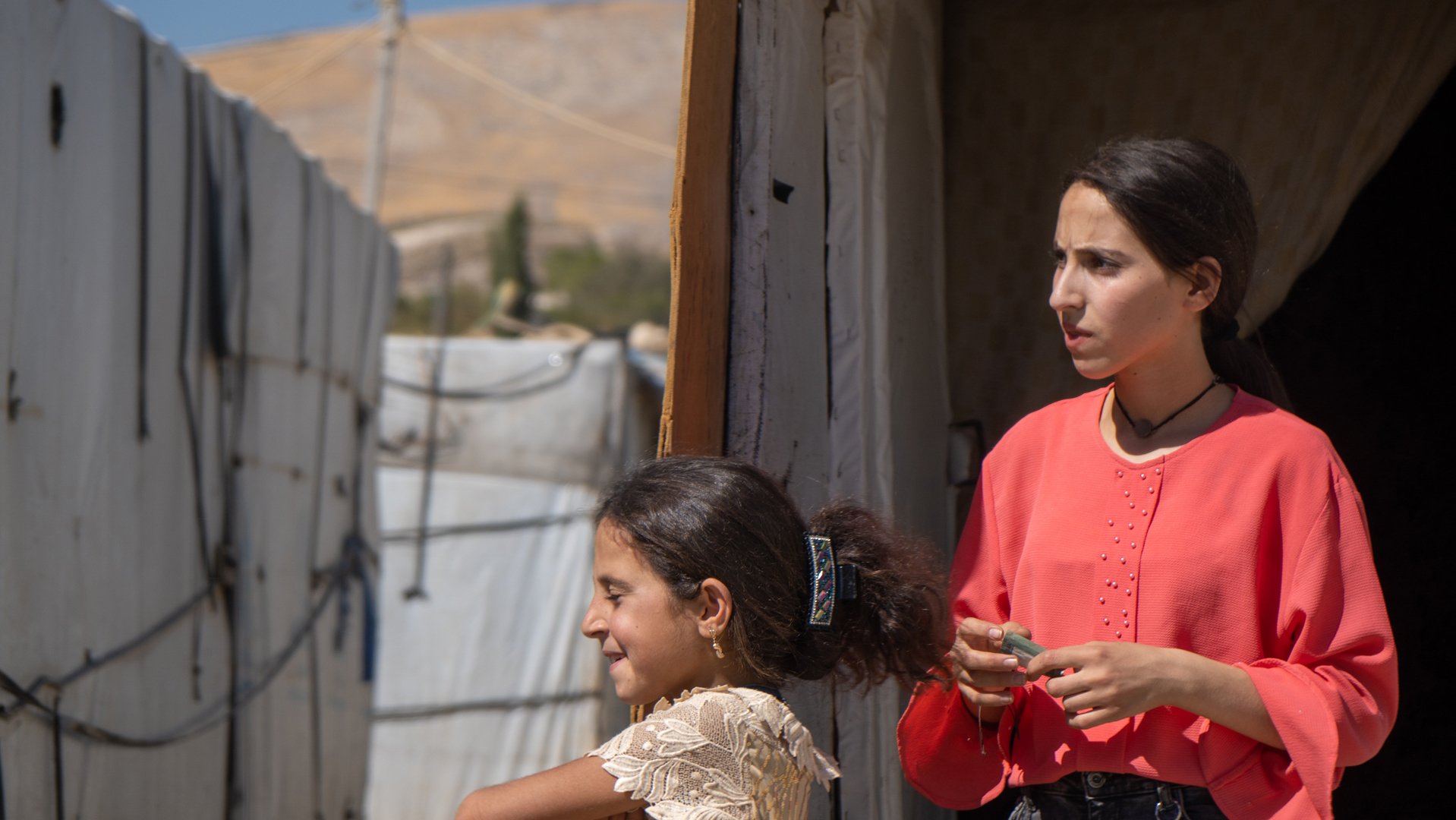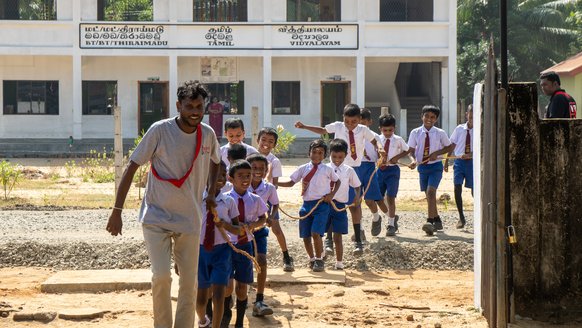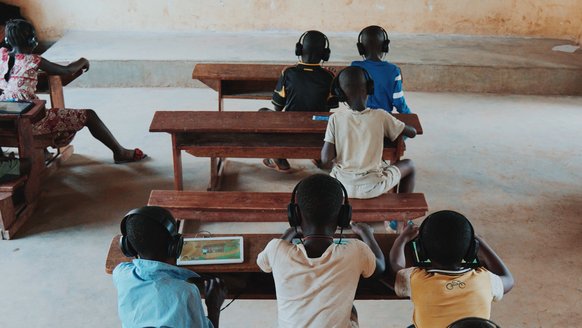“Can I just go to school without bombing sounds?”
April 10, 2019
Brussels, European Parliament

Heba was 15 years old when she was forced to flee the civil war in Syria. Years later, her time with War Child developing the Can’t Wait to Learn programme held great meaning for her. She’s now studying psychology at university and has great ambitions to support other children directly exposed to armed conflict.
Heba's story
“My name is Heba and today I want to share my story.
Imagine living in a place where you see sick and injured people every day; a place where you are surrounded by doctors and nurses. Imagine living in a hospital. This is what happened to me.
In the Summer of 2012 my family and I lived on the sixth floor of Al Noor Hospital in Dier Al Zoor - a city located on the Iraq-Syria border. My father - a doctor - was head manager at the hospital. Since it was very dangerous for him to travel back and forth to fulfil his duties, my mother suggested that we all move to a safe place. And what could be safer than a hospital, right...?
Every day, life at the hospital brought different faces – sad and terrified faces; death in people’s eyes. I began to question: why is there war in my beautiful country? Why do I have to go through all of this? Is it my fault? Why can't I just be a simple girl who goes to school, without the sounds of bombing? Yet all these questions remain unanswered.
During those months – the situation only got worse. The area around the hospital was besieged by the army and doctors, surgeons and nurses struggled to reach it, fearing they might be shot.
“Doctors inside the hospital were unable to return home to their families – yet the injured and unarmed continued to enter the emergency room. I would sneak up to the window to see what was happening. Once I had to mop a floor that was fully covered with blood. My brother, sisters and I witnessed terrifying things.
I always thought of schools and hospitals as peace zones - even in times of war. Yet, the hospital that had become my home was far from safe. The corridors were bombed and all the medical equipment was stolen – sold on in order to buy weapons. My father was arrested due to his humanitarian work. My home and my school were also bombarded. Only stones remained…and my little brothers’ nightmares.
We had no choice but to flee, leaving everything behind – to seek a safer place to live; a place where we could dream again. It was a dangerous journey, that took several months, but finally we reached the Netherlands. A new chapter where my new life has begun.
My story is no different from other children’s stories who have experienced the same cruelties of war. Some have lost family members and suffered sexual abuse. Others have been kidnapped, torn from their homes. Most of them are no longer in school.
These children don't have a childhood filled with joy - the only thing they know is suffering and pain. Boys and girls are victims of war - they have witnessed horrors that no one should ever see. They carry, within their souls, war scars – wounds that may last a lifetime.

Photo: War Child
But we can’t give up and let these children down. Wherever they are, children need protection and a safe haven to turn to. Psychosocial support is also necessary. With the right support, those who experience mental health problems - such as fear, anxiety and depression – might recover. A chance to recreate their dream; shattered by conflict. The most important thing is their right to an education – one that opens new doors so that they can become strong adults and contribute to society.
It’s been three years since my family and I arrived in the Netherlands. Luckily, my little brother’s nightmares are no more - with support from my parents and his school psychologist. I wanted to change people's lives, and that's why I chose to study psychology at university.I mean, who could understand the feelings of a refugee child better than a person who has experienced war herself?
Lastly, you might be wondering: Heba, would you want to return to Syria if it was safe again? My answer is always yes. Hopefully, with my psychology diploma, I can be a strong woman – one who empower others and helps them heal.
And, if you asked me whether I wish to erase all these bad memories from your head? I would say no. We can’t erase memories. Instead, we have to learn to be at peace with them. These memories made me who I am; in fact, they made me stronger. Now, I appreciate the little things in life, just like this moment…
Thank you very much.”

